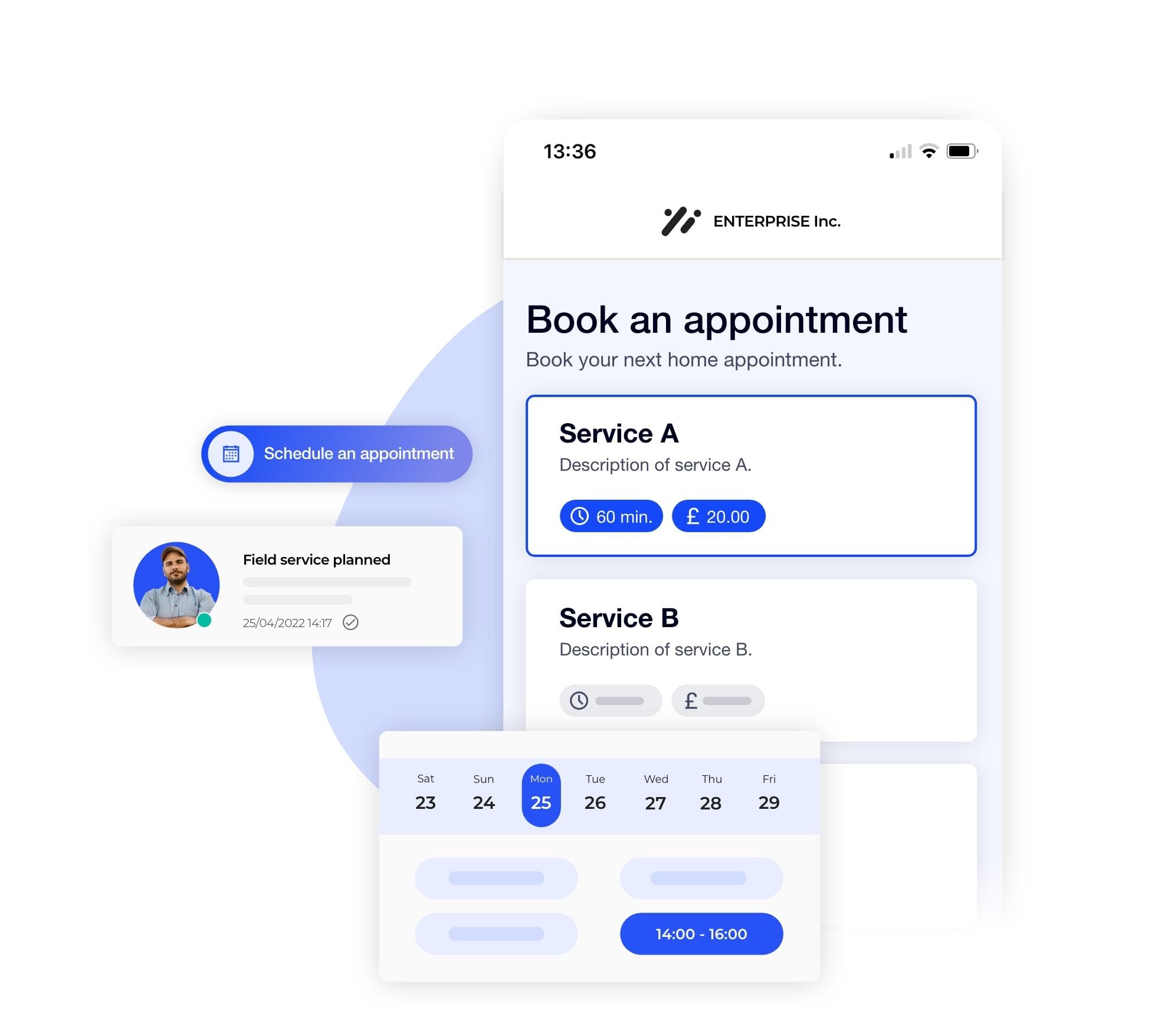In a dance as intricate and occasionally perplexing as flamenco itself, navigating the bureaucratic pasos of Spain’s foreigner offices can leave many expatriates and visitors stamping their heels in frustration. Behind the vibrant allure of Spain’s sun-drenched beaches, historic landmarks, and culinary delights lies a challenge that many foreigners encounter: securing an essential appointment at the extranjería (foreigner office). This elusive step in the immigration process, paradoxically both mundane and critical, opens the door to living or working legally in Spain but often seems as intricate as a labyrinth designed by Escher himself.
Why is this quest often fraught with delays, confusion, and the occasional catch-22 scenario? Like the layers of an onion or the unfolding narrative of a Spanish telenovela, the reasons are manifold and complex. In this exploration, we peel away the layers, examining the interplay of demand and bureaucracy, the digital divide, and the regional variances that paint a picture of a system struggling to keep pace with the high volume of hopeful residents. Join us as we delve into the conundrum that perplexes expatriates and foreigners alike, seeking answers to why securing that coveted appointment can feel like trying to catch a mirage in the Andalusian desert.
Navigating the Population Surge: The Strain on Spain’s Foreigner Offices
In the heart of Spain’s urban centers, a quiet challenge simmers beneath the surface—a priority puzzle involving foreign residents, local citizens, and the administrative arteries that bind them. The offices tasked with managing foreigner affairs are facing an unprecedented surge in demand, a situation akin to an orchestra without a conductor. As digital appointment systems blink ‘fully booked’ with relentless consistency, expatriates are caught in a discouraging limbo. This surge isn’t merely a matter of numbers; it’s a complex cocktail of systemic inefficiencies, outdated infrastructure, and the unpredictable ebb and flow of migration trends. These factors conspire to create an environment where securing an appointment feels akin to a lottery one didn’t choose to enter.
Behind these challenges lie multiple layers of causes. First and foremost, staffing issues stand out. With resources stretched thin, the ratio of officers to applicants has skewed, leaving the former overwhelmed and the latter underserved. This discrepancy isn’t for want of effort; rather, it highlights a systemic understaffing that fails to match the growth in foreign population. Secondly, the procedural labyrinth one must navigate to obtain legal residency or work permits is fraught with bureaucratic knots. Every application is a story, each requiring validation and scrutiny. Nevertheless, the narrative that unfolds within the walls of these offices often reads like a choose-your-own-adventure book, where the next step is always uncertain.
| Issue | Effect |
|---|---|
| Staffing Shortages | Inadequate handling of applications |
| Outdated Technology | Booking system inefficiencies |
| Increasing Demand | Extended wait times for appointments |
To navigate this complex landscape, applicants often turn to forums, social media groups, and the shared wisdom of those who have walked the path before them. Tips on the best times to refresh appointment pages or insights into less congested offices become golden nuggets of information. Yet, despite the communal effort to demystify the process, the undercurrent of frustration remains—a testament to a system struggling to keep pace with the dynamism of global mobility and the human stories intertwined within it.
Bureaucratic Labyrinth: Understanding the Complexity Behind Booking Appointments
Navigating the intricate maze that is the process of booking appointments at some of Spain’s foreigner offices can sometimes feel like a quest in an epic saga, where heroes and heroines face trials not of monsters but of red tape and elusive online platforms. The heart of this complexity is twofold: demand outstripping supply and a digital infrastructure that seems perpetually overwhelmed. Imagine a scenario where thousands are vying for the proverbial golden ticket—a slot on the consulate’s calendar—yet the system seems to have as many openings as a dragon’s heart has vulnerabilities.
The challenge begins with the official websites, where hopeful applicants meet their first trial: navigating through a labyrinthine digital chamber of options without getting lost in dead ends or ensnared by the Minotaur of broken links. Here’s a simplified view of the steps involved, each a layer of the labyrinth waiting to test patience and resolve:
- Discover the correct website: Not a trivial quest, as many find themselves on outdated or unofficial pages that lead nowhere.
- Choose the right type of appointment: A myriad of options, each with its own subset of forms and requirements.
- Find an available slot: The rarest of feats, as availability seems to vanish faster than a phantom, requiring constant vigilance and perhaps a bit of luck.
- Submit the application: With all required documents in hand—a herculean task in itself—applicants submit their forms into the ether, hoping not to face the dreaded ”error” screen.
Adding to the high stakes of this quest is the Table of Waiting Times: a mythical scroll that seems to change with the wind, providing estimates that can span weeks to months for an appointment. Here’s a glimpse into what seekers might expect:
| Office Location | Expected Wait Time |
|---|---|
| Madrid | 3-4 months |
| Barcelona | 2-3 months |
| Valencia | 1-2 months |
| Seville | 3-5 weeks |
Such trials would discourage the faint of heart, but for those willing to brave this bureaucratic labyrinth, the rewards—a successfully booked appointment and progression on their journey—await. The key lies in persistence, preparation, and perhaps a sprinkle of magic in the form of insider tips and tricks shared by those who have navigated these treacherous paths before.
Recommendations for a Smoother Experience: Tips from Those Who’ve Made it Through
If you’ve ever tried to snag an appointment at one of Spain’s extranjería (foreigner offices), you’re probably familiar with the digital equivalent of an endless line. But fear not, seasoned navigators have charted a course that might make the journey less daunting. First off, early birds catch the worm. The booking system refreshes daily – often at ungodly hours – so setting an alarm for those times can dramatically increase your chances. Also, don’t put all your eggs in one basket; regularly check multiple locations if you can. Some offices in smaller cities or towns might not have the demand of larger urban centers, offering a quicker path to your appointment.
Another nugget of wisdom is to stick with it. Persistence is key. Refresh, refresh, and then refresh some more. The system can be quirky, and slots might appear at the most unexpected times. To reduce the tedium, consider using browser extensions that notify you of page changes, automating part of the process. Here’s a simple yet effective strategy shared by a community member:
| Time of Day | Action |
|---|---|
| Early Morning (5-7 AM) | Initial check and booking attempt |
| Midday (12-2 PM) | Second round of checks during potential system refreshes |
| Evening (6-8 PM) | Last check of the day to catch any newly available slots |
Keep these tips in mind, and with a little patience and a lot of persistence, you’ll increase your chances of successfully navigating the appointment system. Remember, it’s a marathon, not a sprint, but with these strategies, you’ll be well-equipped for the race.
Future Prospects: Steps Towards an Efficient System for Spain’s International Community
Looking towards the horizon, there are several pivotal steps to be enacted to nurture an efficient system capable of catering to the needs of Spain’s international community. First and foremost, **digitalization** stands as a key pillar in this transformation. By migrating more services online, not only can the process become more streamlined, but it also significantly reduces the need for physical appointments. The introduction of a centralized online booking system, complete with an intuitive interface and multilingual support, could greatly alleviate the current bottleneck situation. Additionally, the employment of AI chatbots for answering frequently asked questions could further enhance accessibility and efficiency, ensuring that straightforward concerns are addressed promptly, thus reserving human resources for more complex queries.
| Initiative | Expected Outcome |
|---|---|
| Digitalization of Services | Reduced wait times and improved accessibility |
| Centralized Booking System | Fair and efficient appointment allocation |
| AI Chatbots for FAQs | Quick resolution for common queries |
Furthermore, the expansion of staff and offices dedicated to international matters is another critical step in addressing the current inefficiencies. This approach not only involves increasing the number of personnel but also ensuring their training is comprehensive, encompassing both administrative procedures and intercultural competencies. Offering specialized training sessions that focus on the unique challenges and requirements of the international community can result in a more empathetic and efficient service. In addition, expanding the physical locations where appointments can be made and services can be accessed would undoubtedly distribute the demand more evenly, thereby reducing pressure on overburdened centers.
- Enhance personnel training focusing on intercultural competencies.
- Increase the number and spread of offices catering to foreign residents.
- Implement feedback mechanisms to continuously improve service delivery based on user experiences.
By boldly addressing these areas, Spain can pave the way for a system that not only meets the current demands but is also well-prepared for the challenges and opportunities of the future. This transformation requires a concerted effort from all stakeholders, including government entities, the international community, and local residents, each of whom stands to benefit from a more inclusive, efficient, and responsive system.
The Conclusion
As the sun sets on another bustling day in Spain, we are reminded of the rich tapestry that makes up this vibrant country – its colorful culture, mouth-watering cuisine, and the warm embracement of diverse peoples. Amid this backdrop, however, lies the quieter, more ponderous tale of the bureaucratic labyrinth that many foreigners seeking to call Spain home must navigate. From Madrid to Barcelona, Andalusia to the Basque Country, the quest for an appointment at the foreigner’s office is akin to a modern-day odyssey, fraught with trials, waits, and the ever-elusive online booking system.
Yet, this narrative is more than a mere recount of frustrations and bureaucratic tape. It unfolds the larger story of a system under pressure, of offices grappling with demand that overshadows their capacity, and of a world increasingly on the move, seeking new shores for myriad reasons – be it love, work, or safety. It highlights the essential, yet often overlooked, role that these administrative pathways play in weaving the social and economic fabric of a nation, bringing to the fore the importance of patience, persistence, and sometimes, a touch of luck.
As we draw the curtains on this exploration, it’s clear the journey toward easier, more accessible appointments at Spain’s foreigner offices is ongoing. The road ahead may be laden with challenges, yet it is paved with the promise of progress and the undying hope of those who dream of a life under the Spanish sky. In sharing this collective journey, perhaps, we inch closer to a day when the doors swing open a little easier, and the welcome is as warm as the Spanish summer itself.




